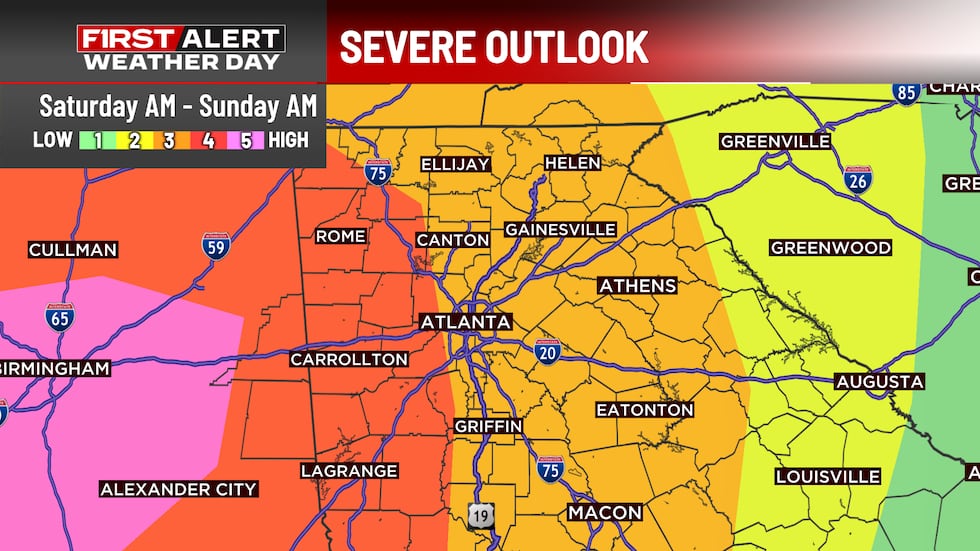Understanding Tornado Warnings: Essential Information for Atlanta Residents
As weather patterns become increasingly unpredictable, understanding tornado warnings is essential, particularly for residents in Atlanta, where severe weather can strike with little notice. In this blog post, we’ll delve into what tornado warnings mean, how they are issued, and what you can do to stay safe when severe weather threatens your area.
What is a Tornado Warning?
A tornado warning is an urgent message disseminated by meteorological authorities indicating that a tornado has been spotted or detected by radar. When a tornado warning is issued, it is crucial to take immediate action, as this means a tornado is either on the ground or capable of forming at any moment. Unlike tornado watches, which merely indicate conditions that are favorable for tornado development, a warning requires immediate safety precautions.
Understanding Tornado Watches vs. Tornado Warnings
Before we discuss tornado warnings further, it’s important to distinguish them from tornado watches.
Tornado Watch: A tornado watch means that conditions are favorable for tornadoes to develop. Weather forecasts and radar data suggest that a tornado could form, but none has yet been confirmed. During this period, it is wise to stay alert and monitor updates from local officials.
Tornado Warning: As previously mentioned, a tornado warning indicates that a tornado has been sighted or indicated by radar. In this case, residents should take immediate action to protect themselves.
The Importance of Staying Informed
Living in Atlanta means being aware of the potential for severe weather, particularly during spring and fall when conditions are prime for tornado activity. It’s vital to stay informed through reliable sources, such as the National Weather Service (NWS) and local news outlets. For example, Atlanta News First offers timely weather updates and alerts to help residents prepare for severe weather threats.
How Tornado Warnings are Issued
Tornado warnings are issued by the NWS based on radar data and confirmed sightings. Meteorologists use Doppler radar to detect rotation in thunderstorms that could lead to tornado formation. Once a tornado is detected or suspected, the NWS conveys this information through various channels:
- Emergency Alert System (EAS): Alerts broadcast over radio and television.
- Wireless Emergency Alerts (WEA): Text alerts sent to your cell phones in affected areas.
- Local News Outlets: Updates provided by local radio and television stations.
How to Prepare for a Tornado Warning
Preparation is key when it comes to tornado warnings. Here are steps you should take:
- **Create an Emergency Plan:** Ensure that every member of your household knows the plan, including how to access a safe room or shelter.
- **Build an Emergency Kit:** Stock it with essential items like bottled water, non-perishable food, first-aid supplies, and a flashlight.
- **Stay Informed:** Regularly check weather updates and stay attentive to alerts from local news organizations.
- **Know Your Surroundings:** Familiarize yourself with your home and workplace regarding safe areas to shelter during a tornado.
What to Do During a Tornado Warning
When a tornado warning is issued, here are steps you should follow:
- **Seek Shelter Immediately:** Go to a pre-designated safe area such as a basement, storm cellar, or interior room on the lowest floor of your building, away from windows.
- **Protect Yourself:** Use thick blankets, mattresses, or helmets to shield yourself from flying debris.
- **Listen for Updates:** Keep a battery-powered weather radio handy, or monitor your phone for updates from local authorities.
After the Tornado: Safety Tips
After a tornado has passed, it’s crucial to exercise caution. Here’s what to do:
- **Stay Informed:** Continue to listen for weather updates, as additional storms may follow.
- **Avoid Damaged Areas:** Stay away from downed power lines and debris to avoid hazards.
- **Help Your Neighbor:** Check on your friends and family to help those who may be injured or in need of assistance.
Conclusion
Tornado warnings are a critical aspect of severe weather safety, especially for those living in areas like Atlanta. Understanding the difference between a tornado watch and a warning, staying informed, and preparing in advance can save lives during severe weather events. Take the time to review your emergency plans and ensure your family is ready to respond appropriately when a tornado warning is issued. Stay safe!








